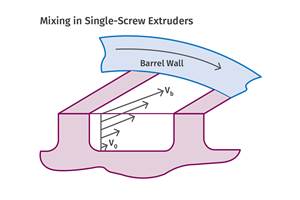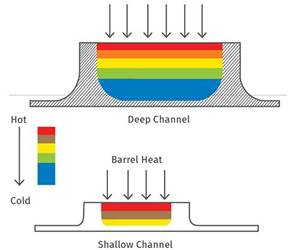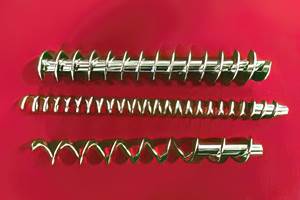Modular 'Plant' Brings HPDE Pipe Extrusion to Site
Modular sytems can extrude 4- to 26-in. pipe and has capability up to 48 in. in lengths of 500 ft or more.
Here’s a new wrinkle in processing—extrusion right at the point of consumption. In this case it’s pipe, and it comes as a result Tubi USA Inc.’s Mobile Modular Extrusion system, in which an entire extrusion line can be setup in cargo containers to produce HDPE pipe right where it needs to be installed—reducing expenses associated with logistics, installation, and handling costs for the mining, oil and gas, irrigation, and municipal water and wastewater industries. Tubi is headquartered in Australia, with North American operations in Vancouver, B.C. and Dallas.
The mobile extrusion plants can be loaded onto flatbed trucks and hauled to project sites in 72 hr to make HDPE pipe for a wide range of infrastructure projects. In the current pandemic, Tubi can move its modular plants where needed and operate at 100% capacity compared to traditional pipe manufacturers in permanent facilities who may face capacity limitations in a down market.
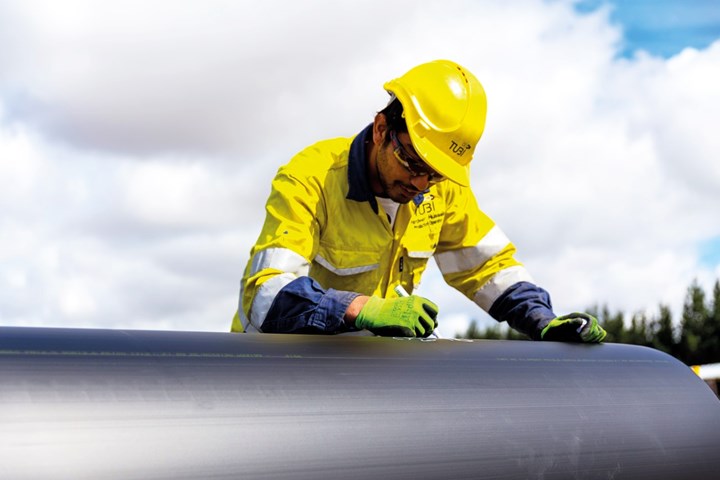
The new technology eliminates the risk of handling large pipe lengths while delivering sustainability advantages by reducing truck traffic, the company says. The mobile factories can be moved to strategic locations, providing increased flexibility compared to conventional brick-and-mortar plants.
Public road transportation is currently seen as the only viable way of delivering pipe, rendering the extrusion of long length pipe impossible, according to the company. Tubi’s modular extrusion plant offers unprecedented lengths of weld-free pipe produced directly on-site, reducing up to 95% of conventional weld joints. The plant can extrude 4- to 26-in. pipe and has capability up to 48 in. in lengths of 500 ft or more. Each modular extrusion factory has 20 million lb of annual capacity.
Tubi says high quality-control standards are directly integrated into this technology, including inline x-ray and center wave technology processes along with the pipe standard requirements, yielding high-quality HDPE pipe with a long service life and proven durability.
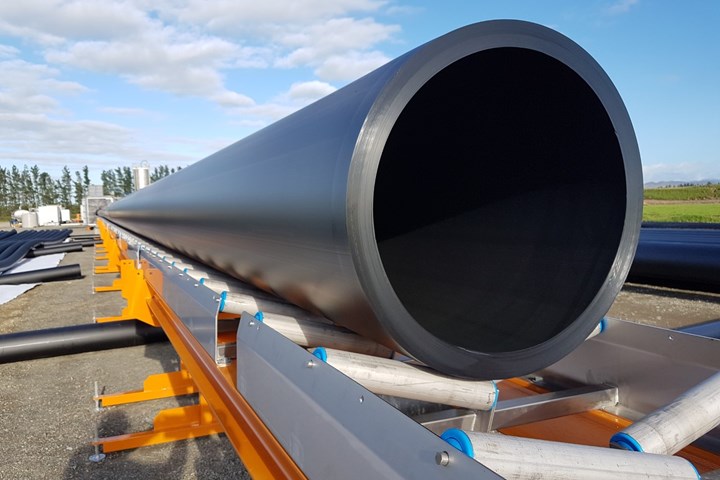
Tubi has established a new mobile manufacturing site in Bartow, Fla. with two plants that are now both fully commissioned and operational. The company won a large project and then leased space from the customer, Mosaic Co., which is the largest fertilizer producer in the world. Mosaic is using Tubi pipe for processing wastewater from phosphate mining. Tubi is producing the pipe in 500-ft lengths. “No one has done that on land before and Tubi also successfully produced 1000-ft lengths of 16-in. pipe,” said Wes Long, Tubi COO.
The two new Florida plants have significant technological upgrades with production lines capable of the highest production rates and the most advanced quality control monitoring in the world. Previously, the Florida HDPE pressure pipe markets were geographically isolated from HDPE pipe manufacturing plants. The direct access to the new Tubi plants in central Florida reduces freight and installation costs, improves safety, reduces carbon emissions, and creates local jobs.
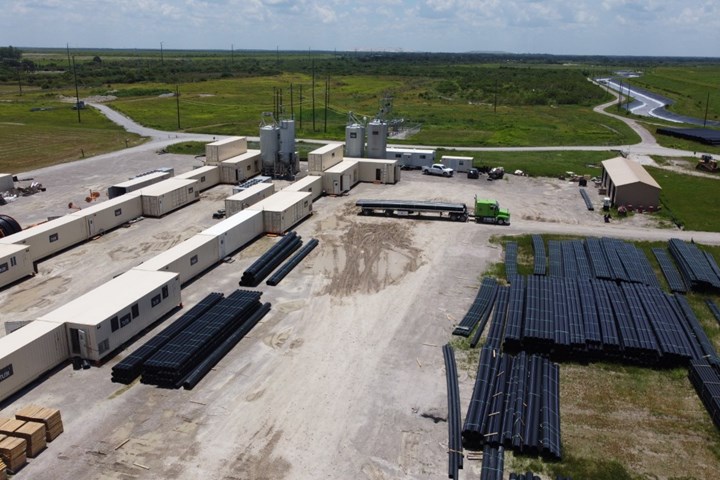
Tubi also currently operates a mobile extrusion plant in Odessa, Texas with plans to move a fourth new mobile extrusion plant to Tucson, Ariz. to serve the Southwest mining industry.
In New Zealand, Tubi’s mobile manufacturing unit produced 105 miles of HDPE pipe for irrigation of 50,000 acres of farmland. The logistics of delivering pipe in this rural area were significantly improved. The irrigation pipe was produced on-site in 100-meter lengths (328 ft). IPLEX NZ, an existing pipe producer in New Zealand, bought the plant from Tubi and operates it under license.
Related Content
Single vs. Twin-Screw Extruders: Why Mixing is Different
There have been many attempts to provide twin-screw-like mixing in singles, but except at very limited outputs none have been adequate. The odds of future success are long due to the inherent differences in the equipment types.
Read MoreThe Importance of Barrel Heat and Melt Temperature
Barrel temperature may impact melting in the case of very small extruders running very slowly. Otherwise, melting is mainly the result of shear heating of the polymer.
Read MoreWhat to Know About Your Materials When Choosing a Feeder
Feeder performance is crucial to operating extrusion and compounding lines. And consistent, reliable feeding depends in large part on selecting a feeder compatible with the materials and additives you intend to process. Follow these tips to analyze your feeder requirements.
Read MoreHow Polymer Melts in Single-Screw Extruders
Understanding how polymer melts in a single-screw extruder could help you optimize your screw design to eliminate defect-causing solid polymer fragments.
Read MoreRead Next
Making the Circular Economy a Reality
Driven by brand owner demands and new worldwide legislation, the entire supply chain is working toward the shift to circularity, with some evidence the circular economy has already begun.
Read MoreFor PLASTICS' CEO Seaholm, NPE to Shine Light on Sustainability Successes
With advocacy, communication and sustainability as three main pillars, Seaholm leads a trade association to NPE that ‘is more active today than we have ever been.’
Read MoreBeyond Prototypes: 8 Ways the Plastics Industry Is Using 3D Printing
Plastics processors are finding applications for 3D printing around the plant and across the supply chain. Here are 8 examples to look for at NPE2024.
Read More



















